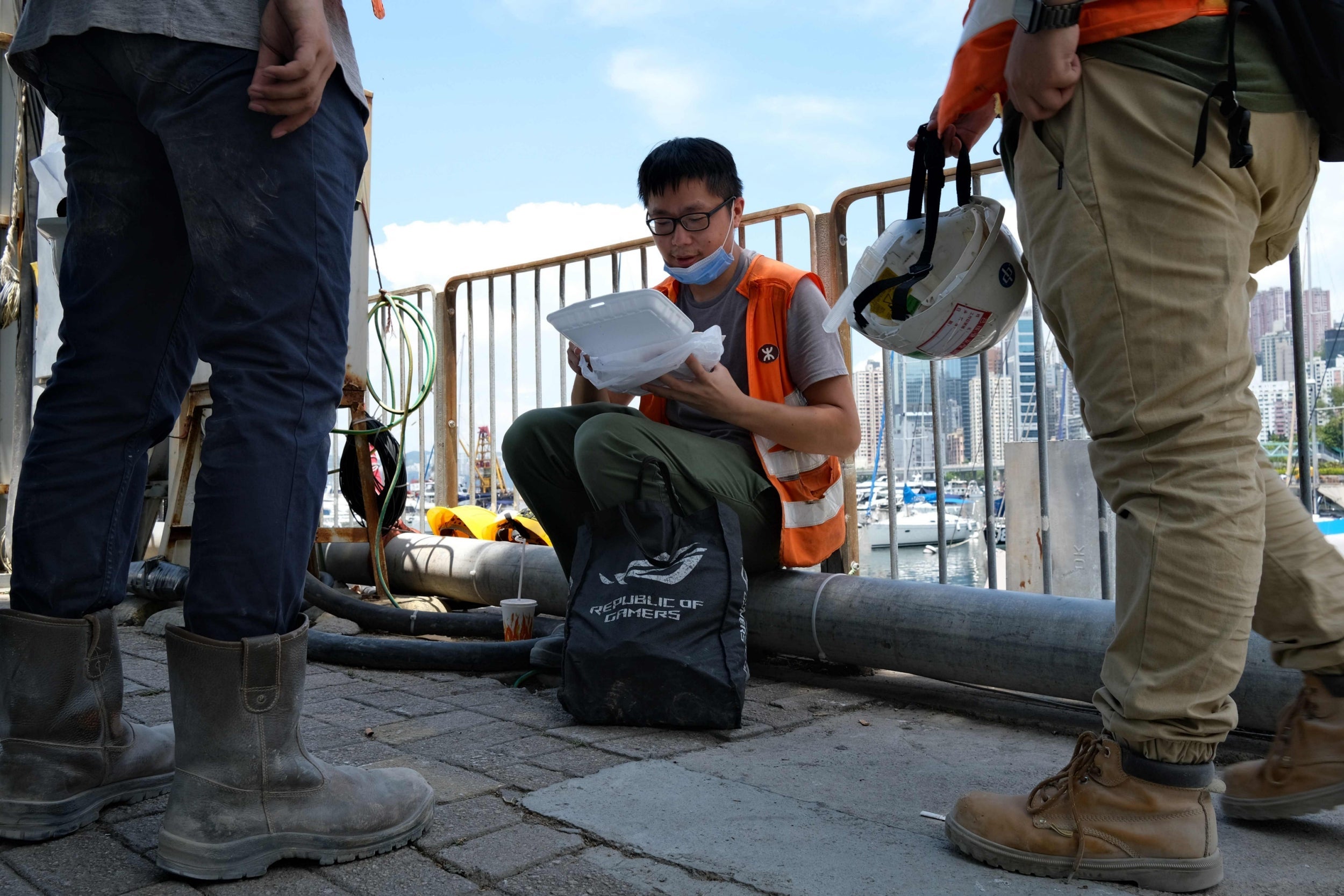Hong Kong makes masks mandatory in public with city ‘on verge of large-scale outbreak’
Leader Carrie Lam warns Hong Kong’s healthcare system is at risk of ‘collapse’, as Adam Withnall reports


Hong Kong introduced its toughest restrictions on Wednesday since the start of the coronavirus pandemic, making face coverings mandatory in all public spaces and ending dining-in at restaurants, as the city’s leader said it was facing a “large-scale outbreak”.
The city won praise early on in the crisis for reducing imported cases and bringing in effective quarantine and contact-tracing measures, recording only about 3,000 infected people in total since January, of whom 24 have died.
However, the Chinese territory’s government reported 118 new coronavirus cases on Wednesday and is now regularly seeing more than 100 infections a day, having at one point brought its outbreak down to single figures added daily.
The new measures were first announced on Monday and will last for at least a week. Hong Kongers who have enjoyed relatively normal freedoms throughout the pandemic were pictured on Wednesday eating in the streets outside restaurants.
Masks must now be worn in public both inside and outside at all times, and gatherings of more than two people have been banned.
The end to dining-in at restaurants has provoked the strongest reaction, with the city currently experiencing a mix of sweltering heat and heavy downpours.
It has been criticised by both pro-Beijing and opposition politicians, and one construction union called it “inhumane” to force workers – who have no indoor office to retreat to – to eat outdoors.
Defending the measures late on Tuesday, the city’s chief executive, Carrie Lam, said there was a danger that a major outbreak would overwhelm Hong Kong’s healthcare infrastructure.
“We are on the verge of a large-scale community outbreak, which may lead to a collapse of our hospital system and cost lives, especially of the elderly,” Ms Lam said.
“In order to protect our loved ones, our healthcare staff and Hong Kong, I appeal to you to follow strictly the social distancing measures and stay at home as far as possible.”
The government is considering postponing an important election on 6 September if the outbreak continues to get worse, according to a report by the public broadcaster RTHK on Wednesday.

Pro-democracy groups are expecting to do well in the vote for seats on the city’s devolved assembly, the Legislative Council, as an expression of public dissatisfaction at new national security laws imposed by Beijing.
Some 600,000 people are said to have turned out to select opposition candidates for the election in an unofficial primary earlier this month, and Joshua Wong, a prominent young activist who was the top pick in his district, said any postponement of the vote in September would be treated with suspicion.
“Using pandemic as an excuse to postpone the election is definitely a lie,” Mr Wong wrote on Twitter.
City laws give the government the power to postpone an election for up to 14 days if it is believed there is a strong risk of it being “obstructed, disrupted, undermined or seriously affected by riot or open violence or any danger to public health or safety”.
Ms Lam’s executive may be able to push it back even further, however, under the sweeping powers of the colonial-era emergency laws invoked at the beginning of the pandemic.
A British Foreign Office spokesperson said on Tuesday that the UK’s foreign secretary, Dominic Raab, had told Chinese diplomat Wang Yi that Britain would be watching the elections in its former colony closely, and stressed that China needed to rebuild trust within the global community.
Sino-British tensions remain high over the security law, which critics say is just the latest step from Beijing in undermining Hong Kong’s autonomy.
It was reported on Wednesday that Benny Tai, a prominent figure in the opposition who organised the unofficial primary vote, had been fired from his job at Hong Kong University.
The university’s governing council voted by 18 to 2 to remove Mr Tai from his position as an associate law professor. Mr Tai is currently out on bail after being sentenced to 16 months in prison in April 2019 for his role in the 2014 Umbrella Movement protests.
Reacting on Facebook, Mr Tai said he planned to keep writing and lecturing on legal issues, and urged the public not to give up hope. “If we continue in our persistence, we will definitely see the revival of the rule of law in Hong Kong one day,” he said.
In a statement, the Chinese central government’s liaison office in Hong Kong said the vote to remove Mr Tai marked “a punishment for evildoing and the upholding of justice”. It said his firing “upholds the overall interests of Hong Kong, meets public expectations and safeguards social justice”.
Join our commenting forum
Join thought-provoking conversations, follow other Independent readers and see their replies
Comments
Bookmark popover
Removed from bookmarks